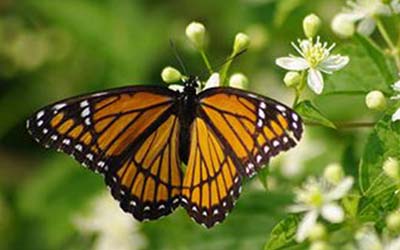
Where to find a COVID-19 vaccine
by Becky Andrus | May 3, 2021 | Regional News
|
|
||||
|
|
||||
|

|
|
||||
|
|
||||

Press Release FOR IMMEDIATE RELEASE: April 29, 2021 CONTACT: MDHHS, Chelsea Wuth, [email protected], 517-241-2112 MDHHS, MDARD, MDNR offer best practices to minimize risk of rabies after four bats test positive in Clinton, Ingham, Kent, and Midland counties LANSING, Mich. – The Michigan departments of Health and Human Services (MDHHS), Agriculture and Rural Development (MDARD) and Natural Resources (MDNR) are urging Michiganders to adopt practices to protect their families and animals from rabies. Four bats have tested positive for rabies in Clinton, Ingham, Kent, and Midland counties in 2021. Spring is typically when rabies cases start appearing. Generally, bats and skunks are a primary source of the disease. Michigan local health departments experience an increase in calls from citizens about bat encounters between May and September when bats are most active. In 2020, there were 56 cases of rabies in Michigan animals including 52 rabid bats and four rabid skunks. “With warm weather coming, it is possible for Michiganders to unintentionally come into contact with a potentially infected animal,” said Dr. Joneigh Khaldun, MDHHS chief medical executive and chief deputy for health. “If you come into physical contact with a wild animal or are bitten or scratched, it is important that you seek medical care quickly to keep a treatable situation from becoming potentially life-threatening.” Rabies is a viral disease of mammals and is transmitted through the bite or scratch of an infected animal. Exposures can take place in a variety of settings, including when bats are found in the bedroom of a sleeping person or a child comes into contact with an infected animal. It is important to seek medical care to determine the need for post-exposure treatment. Rabies is fatal to humans if proper treatment is not received before symptoms begin. Preventive treatment is given to people who are exposed to a potentially rabid animal. Treatment is not necessary for people if the animal can be tested and tests negative for rabies. To protect your family and your animals from rabies, there are some very important tips to follow. People:
Animals:
More information about rabies and a map of rabies positive animals in Michigan can be found at Michigan.gov/rabies. |

|
Media Contact: Lynsey Mukomel FOR IMMEDIATE RELEASE: AG Nessel Reissues Consumer Alert as Scammers Target Grieving SurvivorsLANSING – Michigan Attorney General Nessel is warning Michiganders to beware of scammers reaching out to loved ones of COVID-19 victims offering to register them for funeral assistance from the Federal Emergency Management Agency (FEMA). According to a fraud alert from FEMA, the agency does not contact people before they register for assistance. FEMA is offering funds to help pay for funeral expenses that people have paid since January 20, 2020 for loved ones who died of COVID-19. The fraudsters are targeting potential applicants and offering to register them for the FEMA funeral assistance program in an effort to steal personal data. As a result, the Attorney General’s office reissued a consumer alert on government imposter scams. “I’ll say it again: bad actors will do whatever it takes to make a quick buck or steal your personal information and that includes taking advantage of your grief,” Nessel said. “FEMA will not contact you until you have called their agency or applied for assistance. Anyone who contacts you unsolicited and claims to be a government employee or from FEMA is a scammer.” Anyone who receives a phone call they suspect to be a scam should avoid giving out personal information and hang up immediately. Avoid being scammed:
If you receive a suspicious call from someone claiming to be from FEMA, hang up and report it to the FEMA Helpline at 800-621-3362 or the National Center for Fraud Hotline at 866-720-5721. For questions about FEMA’s funeral assistance program or to apply, call 844-684-6333 or visit their Frequently Asked Questions page online. As always, Your connection to consumer protection is just a click or phone call away. Consumer complaints can be filed online at the Attorney General’s website, or by calling 877-765-8388. |

|
|||||||||
DNR Get Involved – May 2021
|
|||||||||
|
|||||||||
 Stay informed, stay safe: Mask up Michigan, DNR COVID-19 response Stay informed, stay safe: Mask up Michigan, DNR COVID-19 response |